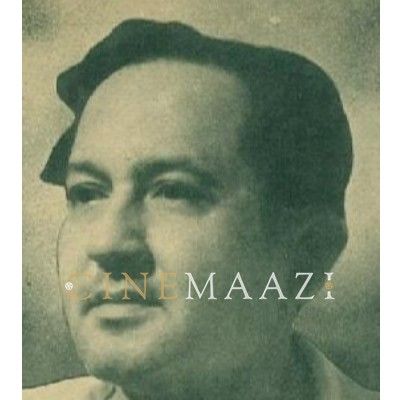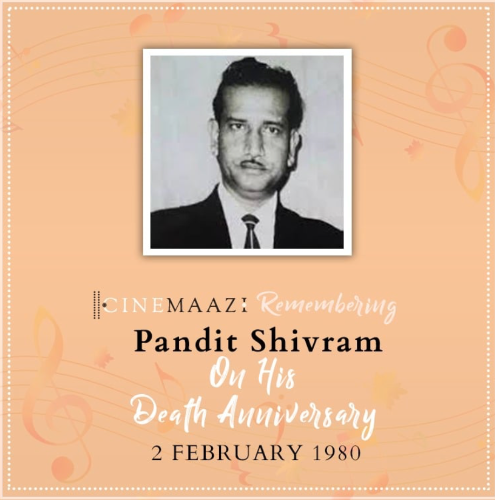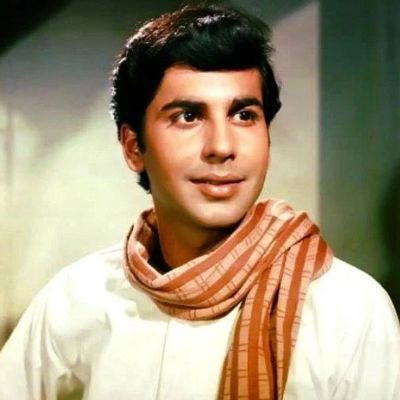Khumar Barabankavi
Subscribe to read full article
This section is for paid subscribers only. Our subscription is only $37/- for one full year.
You get unlimited access to all paid section and features on the website with this subscription.
Not ready for a full subscription?
You can access this article for $2 , and have it saved to your account for one year.
- Real Name: Mohammed Haidar Khan
- Born: 15 September, 1919 (Barabanki, United Provinces)
- Died: 19 February, 1999
- Parents: Dr Ghulam Haider
Khumar Barabankvi was a noted Urdu poet and film lyricist. He is known for penning the lyrics for films such as Shahjehan (1946), Hulchul (1951), Bara-Dari (1955), Do Roti (1957), Saaz Aur Awaaz (1966), and Love And God (1986). Known as Shahenshah-e-ghazal and Abru-e-ghazal for his virtuosity in the ghazal, his popular compositions include Dil ki mehfil saji hai rendered by Mohammed Rafi, Chhodo chhodoji baiyan mori sung by Lata Mangeshkar and Shamshad Begum, Tasveer banata hoo by Talat Mahmood, Aayi bairan bahar by Lata Mangeshkar and Nashad, Yeh nadanon ki duniya hai by Rafi, and Gulshan gulshan sehra sehra and Mohabbat ki bas itni dastaan hai both by Rafi and Lata.
Born Mohammed Haidar Khan on 15 September, 1919, he hailed from an environment rich in poetry. He was the son of Dr Ghulam Haider, who penned salaams and marsiyas, under the pen name Bahar, while his brother Kazim Haider ‘Nigar’, who died early, was also a poet. He was guided at a young age by his uncle Qaraar Barabnkvi, who was a well-known poet of Barabanki. It was his uncle who would assess and make the required rectifications to his poetry in his early days. On completing his high school from Government College, Barabanki, he moved to Lucknow for his Intermediate classes. However, he wasn’t to remain within the folds of the educational institution for long: apparently, a love episode gone wrong prompted his decision to quit his studies and take to writing love poetry.
He adopted the pseudonym Khumar, which has its roots in the Arabic word 'Khum' which means a jar of wine, while Barabankvi is courtesy the place of his birth, Barabanki in the United Provinces. Popular at mushairas for his ghazals presented in his melodious voice and pleasing style of recitation, his presence at live poetry reading events guaranteed their success. Like poet Jigar Moradabadi, with whom he struck up a long association and also performed with, Khumar was an avid advocate of the classical ghazal.
He also went on to make his mark in Hindi film music as a lyricist. He penned approximately 115 songs for 27 films. His break came in 1945 when he visited Bombay to attend a mushaira. Both film director A R Kardar and music director Naushad happened to be in attendance at the event. His poetry and ghazals impressed the duo, and Kardar who was making Shahjehan with Naushad as music director, offered him the opportunity to write a few songs for his film. The lyrics he penned for the film, as well as those penned by Majrooh Sultanpuri, became widely popular. His song Chaah barbad kare ji hamein maaloom na tha rendered by Saigal in the film brought him fame and recognition in the film industry.
In 1949, he wrote Tum ho jaao hamaare sung by Mohammad Rafi in Roop Lekha (1949) and Hasrat bhari nazar ko tera intezar rendered by Geeta Dutt and Zohra Khan in Dil Ki Basti (1949). In 1951, Lata Mangeshkar rendered his number Loot liya mera qaraar for the film Hulchul (1951). While all the songs he penned for Bara Dari (1955) were successful, the songs Bhula nahin dena ji and Tasveer banata hoon tasveer nahin banti became super hits.
His other popular songs include Aaj mere naseeb me mujhko rula rula diya, Mujhe phir wahin yaad aane lage hain, Aaj gham kal khushi hai yeh zindagi, and Apne kiye pe koi pashemaan ho gaya. His ghazals were rendered by leading singers including K. L. Saigal, Mohammad Rafi, Lata Mangeshkar, Ghulam Ali, and Jagjit Singh.
Working with prominent music composers like Naushad and Nashad, Khumar Barabankvi also penned lyrics for films such as Qatil (1960), Zara Bachke (1959), Mehndi (1958), Captain Kishore (1957), Do Roti (1957), Mehfil (1957), Jallad (1956), Lal-E-Yaman (1956), Jawab (1955), Rukhsana (1955), Shahzada (1955), Darwaza (1954), Bikhare Moti (1951), Hulchul (1951), Meharbani (1950), Aadhi Raat (1950), Roop Lekha (1949), Dil Ki Basti (1949), Andhon Ki Duniya (1947), Matwala Shayar Ram Joshi (1947), Naatak (1947), Devar (1946), and Keemat (1946).
A successful songwriter, he still preferred to attend mushairas. Later, disillusioned with the falling standards of poetry in films, he stayed away from the industry for a long time. It was on the insistence of music director Naushad that he agreed to pen songs for K Asif’s Love and God. Soon after, he quit the film industry and settled in Barabanki.
His published poetry continues to charm poetry-lovers. His works include Hadees-e-Deegaraan, Aatish-e-Tar, Raqs-e-Mai, Shab-e-Tab, and Aahang-e-Khumar.
Khumar Barabankvi passed away on 19 February, 1999. He is buried at Karbala Civil Lines, Lucknow-Faizabad Road, Barabanki.
The Khumar Memorial Academy, a library established in his honour, was set up in Barabanki.
References
Sources: https://www.rekhta.org/poets/khumar-barabankavi/profile (SOURCE : Muraqqa Shora-e-Urdu)
https://kavishala.in/sootradhar/khumar-barabankvi
https://www.imdb.com/name/nm3199934/
https://www.jiosaavn.com/artist/khumar-barabankvi-songs/tb67d5qYMXo_








.jpg)


